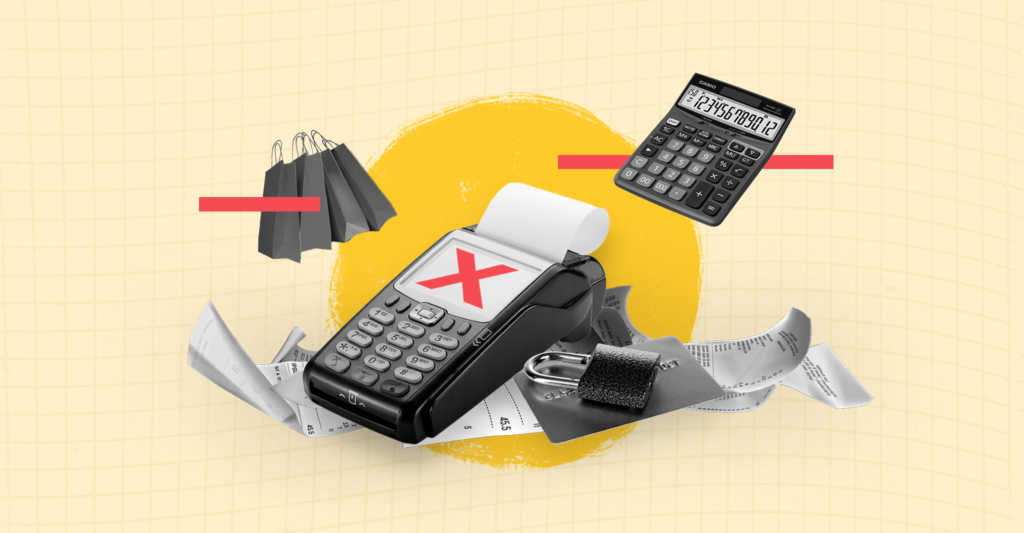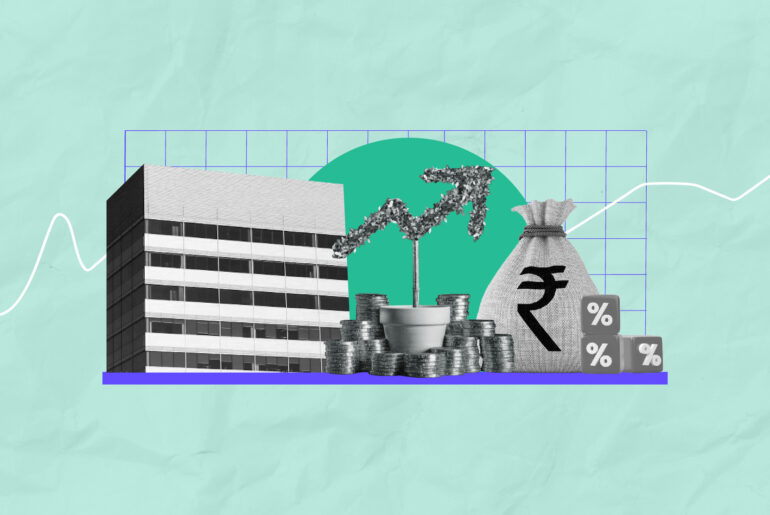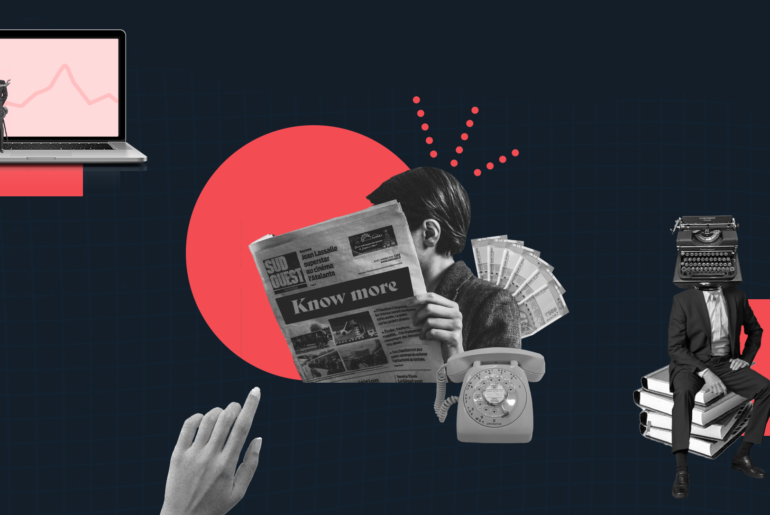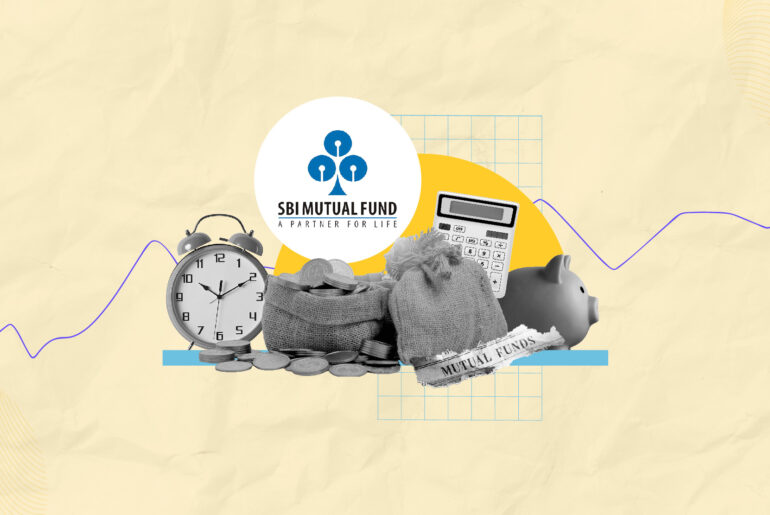Last Updated on May 24, 2022 by Aradhana Gotur
Every day thousands of loan applications are rejected based on various aspects, but have you ever wondered what happens when you approach banks for a loan? And why does your loan application get rejected? Because the banks and authorities primarily check your credit score, i.e., your credit history, reimbursement capacity, and more. A credit score defines your creditworthiness, and it is a deciding factor on whether you are a good borrower or a bad borrower.
A good borrower is defined by various factors such as timely dues, more credit limits, and no defaults. A bad borrower is when one has a history of delay in payments and a lower credit score. The higher your score is, the better a borrower you are. As a result, lenders can mitigate and assess risk while lending you money. On the other hand, if your score is low, lenders frown upon lending since there’s a risk of defaults by the borrower.
Table of Contents
Good and bad credit scores
In India, CIBIL [Credit Information Bureau (India) Limited] score is a credit score generated by TransUnion CIBIL Limited. The score ranges from 300 to 900. So if you have a score from 650 to 750, it’s considered a good credit score. But if you happen to have a score above 750, that’s excellent. Credit score assessment is based on several factors. Let’s discuss each element.
Payment history
This is a statement that reflects your previous debt payments, acknowledging if you have made the payments within the due date or any delay. Previous statements cover all records of payment duration and defaults of the past. This is known as payment history, which helps to assess your credit score.
Suppose you own multiple credit cards, including some that you don’t use. Most of the time, you may not be aware of the clauses and conditions for each card thoroughly if you haven’t read the terms and conditions. But some cards have annual maintenance charges, which is payable every year. If you forget to keep track and pay the due amount on time, this amount and interest accrue over time. And this negatively affects your credit score.
Thus, you should not only pay your EMI on time but also pay your credit card bills without defaulting.
Reduced credit card limits
Credit card limits are offered based on your credit score and timely payment history. The better the score, the better the offered limit, but when you lower the limit, it suggests that you can no longer afford to pay the dues that you would incur in the future. Thus, it adversely affects your score.
New credit facilities
If you have an ongoing loan, you need to rethink it before availing a new one. You already have one to pay. Any defaults like delays in payments will adversely affect your credit score and create hassles in availing of new credit facilities. Assess if you can afford to pay multiple credit payments on time. If yes, then it will increase your credit score.
Suppose you need a loan, you make inquiries from banks or NBFCs where they have to assess your credit score for the sole purpose of granting a loan. This is termed as a hard inquiry. In contrast, soft inquiries are those done by the banks when offering pre-approved credit cards or any EMI process on your credit card.
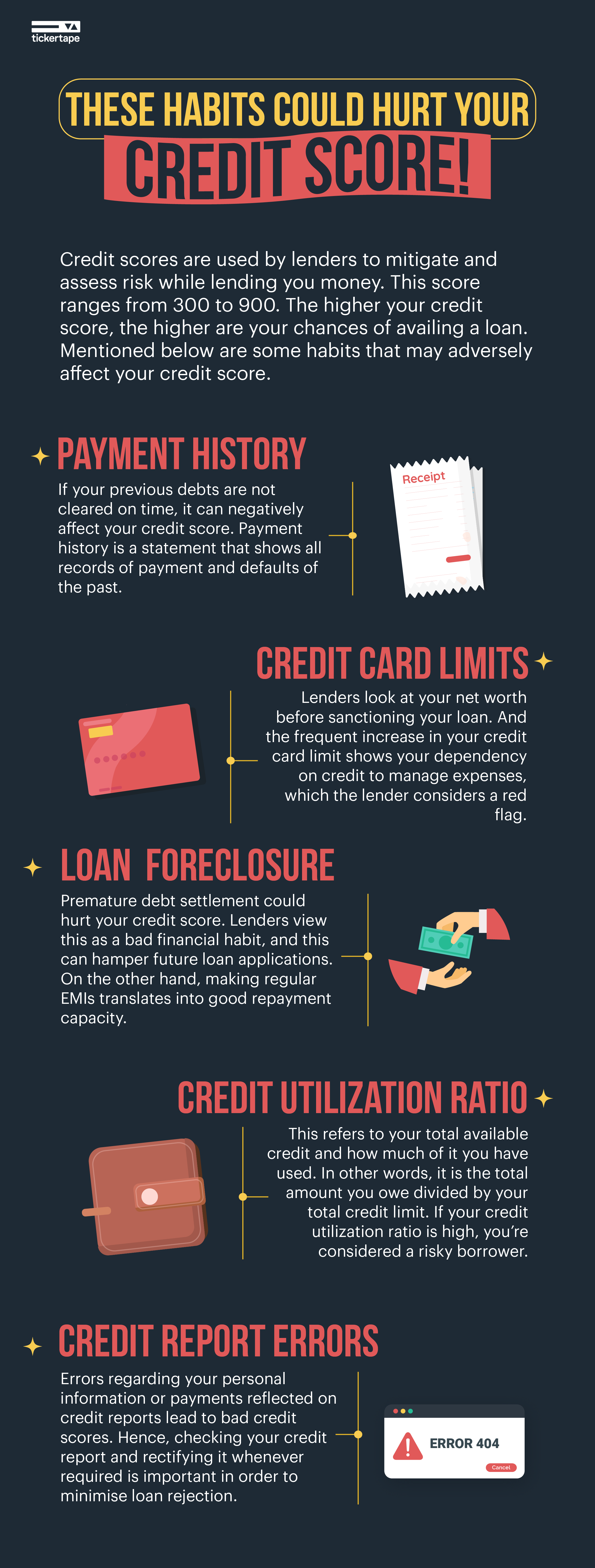
If you submit multiple hard inquiries for a loan from various banks, NBFCs, websites or through agents, it gets recorded as a desperate attempt for a new line of credit. This is termed as “credit hungry” and reduces your score depending on the number of times you try to obtain a loan. Your score is also impacted by the nature of the loan (secured or unsecured loan) you are trying to secure.
Loan foreclosure
You can settle off your debt by paying it off prematurely, but this marks a negative impact on your report. This is because the sudden loan repayment shortens the credit account, which doesn’t benefit the lender.
Outstanding debt
This is the payment previously defaulted by you and stands payable along with interest accrued on it. This, in turn, affects your credit score, as it is verified in the form of a credit utilisation ratio, i.e., the ratio of the current credit limit you have to the amount you have already used. The higher the ratio, the lower the score.
Credit report errors
Errors regarding personal information, contact details, or reflected payment to other accounts negatively impact the credit score, leading to lower opportunities of availing a loan or getting your new limit approved. Thus, you can continuously check your credit report to rectify these errors at the earliest.
In a nutshell
A credit report is crucial because it has the power to impact your finances and ability to achieve long-term goals like buying a home or purchasing a car. In addition, a credit report can help you put your best foot forward as a responsible borrower who understands how to manage your finances with a higher credit score.
Whether you already have a good credit score and you want to keep it or you want to improve that score, it’s critical to avoid these common pitfalls that can bring your score down. Instead, keep up with your monthly payments, limit your spending, and only take on new credit if you genuinely need it.
- Top Large Cap Funds (2025): Best Blue Chip Mutual Funds - Apr 15, 2025
- List of Best Index Funds in India 2025 - Apr 15, 2025
- List of High Beta Stocks in India: Volatile Shares on NSE - Apr 11, 2025
